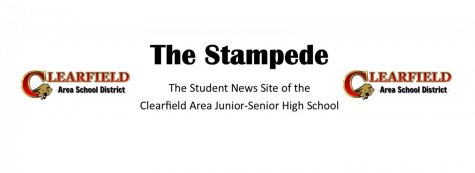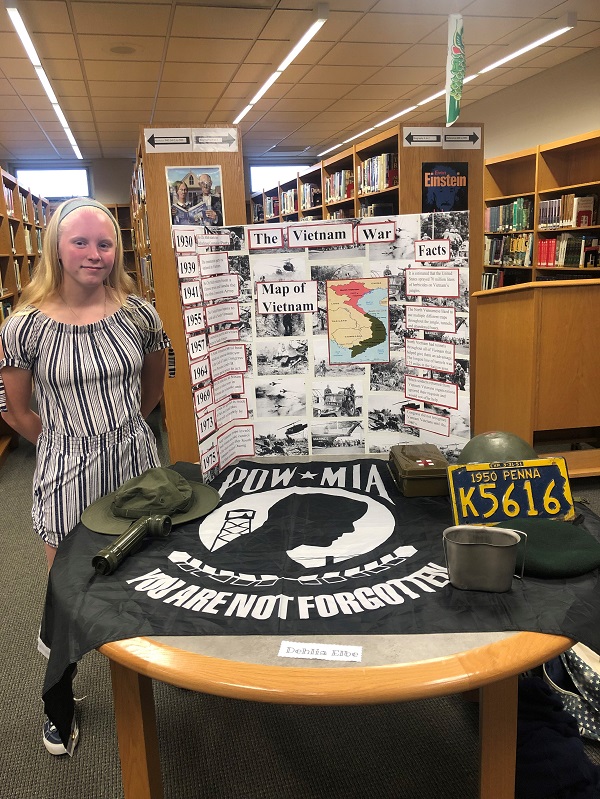Freshmen present their I-Search projects
April 20, 2022
Each year, students in the 9th grade are assigned, in their English classes, to do an I-Search. The I-Search project is similar to its name; each freshman gets to do an extensive research presentation on the topic of their personal choosing. Nearly 150 freshman students presented the I-Search Fair this school year. The presentations took place periods 1, 4, 5, 6, 7, and 9 on April 6-7. Mr. Cima and Mrs. Danver are the freshmen English teachers who oversee the projects.
Mr. Cima, describes the project process as the following, “The I-Search project is one where you pick a subject to which you have a personal connection and wish to learn more, and write about it from a personal point of view. Students form a tightly focused research question along with four sub-questions pertaining to the topic. ”
Mr. Cima adds: “The I-Search process consists of three major parts. The first part is the story of your search. In this section, you tell readers what you knew about your subject before you began your research, what you wanted to know, and the research steps you went through to find out what you wanted to know. The second part is entitled ‘What I learned.’ In this section, you give readers the results of your search—both the answers you found and the answers you did not find. The final section is a reflection piece. You use this final section to tell readers what the experience has taught you about conducting and documenting a search. The culminating activity for the I-Search is the fair at the library in which all the students display their tri-folds and interact with the audience. They engage them with games and interactive elements to inform them on the significance of their topic.”
There are many steps to completing this project, and the freshman have a lot they can take away from this process. When asked why this project is beneficial to freshman moving forward, Mr. Cima responded, “Freshmen will benefit from conducting a very thorough research project which requires at least 10 sources. Many students use more than the required number. Students create source cards and fact cards from their data to be used in the composition of their I-Search essay. The creation of a tri-fold is a visual/artistic representation of their topic, and they will get to showcase it at the I-Search Fair for other students, faculty, family, and friends.”
It is important to know how freshmen felt about the project first-hand, so below are some questions regarding what freshmen have taken out of this experience.
Q: What does your I-Search topic say about you as a person?
Caspian Lippert: “I picked my topic because I have loved ones that are diagnosed with bipolar 2 disorder and I just wanted to learn more about it and be more familiar with it so I can help them deal with their diagnosis. So I believe that as a person it says that I’m supportive and open minded.”
Q: Do you feel like a stronger writer/researcher after doing the I-Search?
Marissa Thomas: “Yes I do. I didn’t really know how to research properly before the I-Search but now I do and with the writing part I’ve never been very good at writing but I was able to do a pretty good job on it.”
Q: What was the most difficult part of the project for you?
Madi McBride: “The most difficult part for me was probably finding the information and finding it on time. I don’t manage time well and was always rushing to finish my sub-questions on time.”
Q: What is your topic and what knowledge and inspiration do you want your audience to leave with after seeing your presentation?
Rowan Mattern: “My topic is on chakras and holistic medicine. I want people to engage in my topic and feel like they’ve learned that they can better themselves in the energy centers in their body by the end of my presentation. I hope to do this by thoroughly explaining each chakra and their meanings and showing people how easy cleansing your energy can truly be.”


